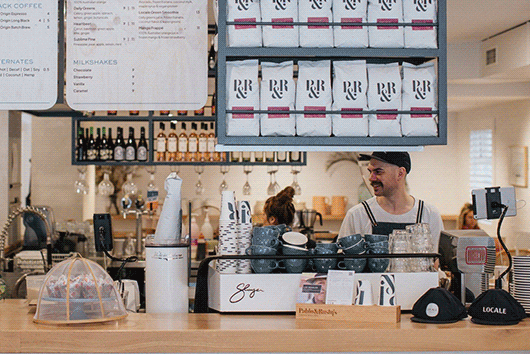Cafés could be affected by government’s proposed cash mandate

Pablo & Rusty's Coffee Roasters operations manager Chris Tate says going cashless has made his venue safer and more efficient.
However, a proposed mandate by the Albanese government that would force businesses to accept cash for essential products or services, could reverse the gains he feels have been made.
Pablo & Rusty's Brisbane and Sydney venues turned cashless a few years ago.
Tate told 9news.com.au, "Cash [can be] a bit clunky and awkward and it can slow down the speed of service, it can create operational challenges within the business.
"Based on the experience we've had in the past and running cafes, multiple venues and the challenges associated with cash, we were like, 'let's do it'".
Tate notes his staff also feel much safer working at a business without cash in the registers.
"First of all, holding cash, for one, is a risky venture. You've got a risk of theft," Tate said.
"There's also a cost involved with holding cash – staff have to hang around after their shift, count the cash and put it in the safe, then go to the bank… and they're becoming harder to find these days."
Insurance premiums are also lower.
"We've seen a reduction in policies across both of our stores because we don't have cash."
The venues aren’t completely cashless as they will accept cash from first-time customers, but customers will be asked to tap with their card if they frequent the venues.
"We did everything we could to equip staff with the right language and level of understanding about why we made the decision," he said.
"It's also about being empathetic to the customer and not making them feel uncomfortable or awkward."
Tate believes a cash mandate could further hurt hospitality businesses.
"Cash is costly to process, store, and deposit; part of the reason why we stopped accepting it years ago.
"Larger businesses have a vital role to play in this space, but for small operators, the details of implementation will matter greatly.
"What we need is less red tape and more government support, alongside a stronger focus on ensuring competitive, regulated merchant fees that work for both businesses and consumers."
Pablo & Rusty’s decision to go cashless aligns with a growing trend among businesses, including Gloria Jean’s cafes and Sunshine Coast Holiday Parks in Queensland.
A spokesperson for Sunshine Coast Council told 9news.com.au, "Last year, we hosted nearly 128,000 visitors, with 97 percent of all transactions made via EFTPOS or credit card. Cashless payments offer a smoother and more secure experience for everyone visiting Sunshine Coast Holiday Parks."
Under a proposed mandate set for 2026, essential services such as supermarkets, petrol stations, and other major businesses would still be required to accept cash payments.
However, smaller businesses like Pablo & Rusty’s could be exempt.
The push for this legislation is partly fuelled by the "cash is king" movement, which has gained traction in Australia.
Independent MP Andrew Gee recently introduced the Keeping Cash Transactions in Australia Bill 2024, aiming to address concerns over the declining use of cash. Gee, however, acknowledged that the bill may not prevent businesses from transitioning away from cash entirely or preserve cash's dominance in Australia’s economy.
Jonathan Jackson, 19th November 2024







